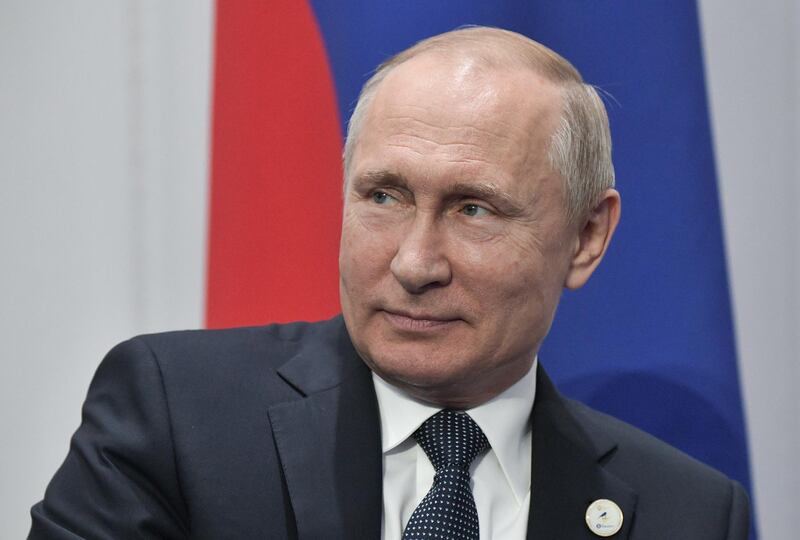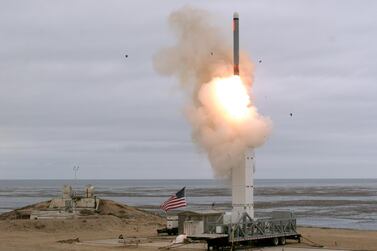The UN Security Council will hold an open meeting on Thursday at Russia's request about a US missile test that would have been banned under a treaty that Washington and Moscow abandoned this month.
Russia's deputy UN ambassador, Dmitry Polyansky, said on Wednesday that Moscow called the meeting "because of the threats the US pronounced on the deployment and development of the missiles, in breach of the agreements".
"The urgency is that there are a lot of threats," Mr Polyansky said. "We are on eve of the new arms race. We want to discuss this issue."
The Trump administration accused Russia of being unwilling to stop breaching the 1987 Intermediate-range Nuclear Forces Treaty.
Russia accused the US of the same and both withdrew from the treaty on August 2.
Washington said it had tested a modified, ground-launched version of a Tomahawk cruise missile that hit its target more than 500 kilometres away.
The weapon was not armed with a nuclear warhead, officials said. But the missile was banned under the INF Treaty.
Moscow said it was in full compliance with the treaty, which was signed between Ronald Reagan and Mikhail Gorbachev in 1987.
The US set about abandoning the International Nuclear Forces Treaty, which was the only Soviet-era arms control agreement still intact, shortly after US President Donald Trump took office in 2016.







